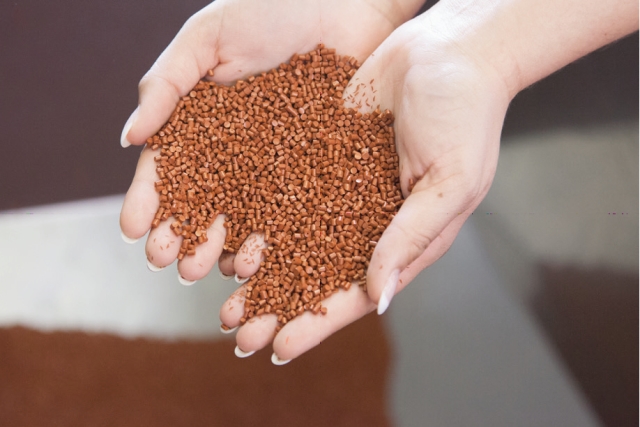Product Safety
The product safety officer ensures that manufactured products are not a danger to the safety or health of consumers. Detailed knowledge of the numerous laws and regulations is indispensable, especially for specific customer requests.
Masterbatches and the plastic products for which they are used may not pose a hazard to the environment or human health. The product safety officer ensures compliance with all regulations.
The job
Although associated with a lot of paperwork, the work of the product safety officer is extremely important. As the law requires, the product safety officer ensures that the manufactured product is not associated with any safety risks. And since masterbatches are intrinsically involved in many different products from plastic packaging for food, toys, sports equipment and household goods to automotive and aerospace components, this means: the product safety officer must consider all regulations governing the various intended applications and ensure they are taken into account during development and production. For example, only colour pigments that comply with all applicable standards may be used in toys like baby rattles.

A good foundation in chemistry will make it easier for the product safety officer to answer customer queries.
The “accompanying documents” for masterbatches are now largely generated automatically using a suitable IT system, but the product safety officer is responsible for the execution. The system also enables the exact content of a masterbatch to be determined if necessary for any reason. This means that the company IT system must support the traceability of the raw materials used in the production processes. Which batch of raw material was used for a particular masterbatch product and who purchased it? These questions require quick responses, because any complaints regarding the masterbatch manufacturer’s pigments must be met with a fast review of the facts and introduction of appropriate countermeasures to protect the consumer.
The skills
The potential product safety officer needs to have two very opposing skills: first, they should be well-spoken and eloquent and need to view tackling complex legalities as a welcome challenge rather than a torment. And they should have broad knowledge of polymer, pigment and additive chemistry. Both make it easier to provide sound and satisfactory responses when a customer asks for details about product safety. Is it possible that element XY is present in the produced masterbatch or can it be excluded based on the manufacturing process? And what does “excluded” mean? After all, many substances can be detected almost anywhere if the analytical method is accurate enough. The product safety officer makes every effort to understand the exact need behind the customer’s request. Only then is it possible to provide legally compliant information. If the topic at hand is completely foreign to everyone, the next logical step is for the product safety officer themselves to gather the necessary information. As in many jobs, a career as a product safety offer is a lifelong learning process.
The training
Lawyer and chemist at the same time; it’s unlikely any product safety officer will bring this type of training and experience with them. Knowledge in both disciplines relevant to the company and its operations is developed over time by long-term masterbatch employees. Product safety officers must formally meet the essentials of training with a certificate endorsed by a specialist who creates safety data sheets. Advanced training on all topics relating to product safety in the various customer industries makes things easier, as does the Technical Commission of the Masterbatch Association, a forum where product safety officers exchange information and common positions on current issues regarding product safety.

In short
In Germany, the Product Safety Act (ProdSG) regulates the quality of products in terms of safety.
![]()
The documents accompanying the finished masterbatches provide information on safe handling in the subsequent manufacturing processes. The safety data sheet provides information about possible hazardous substances.
![]()
IT-based traceability makes it possible to avert serious risks if there are safety deficiencies in a raw material.
![]()
Product safety officers acquire the necessary specialist knowledge through various seminars and self-study.
![]()

